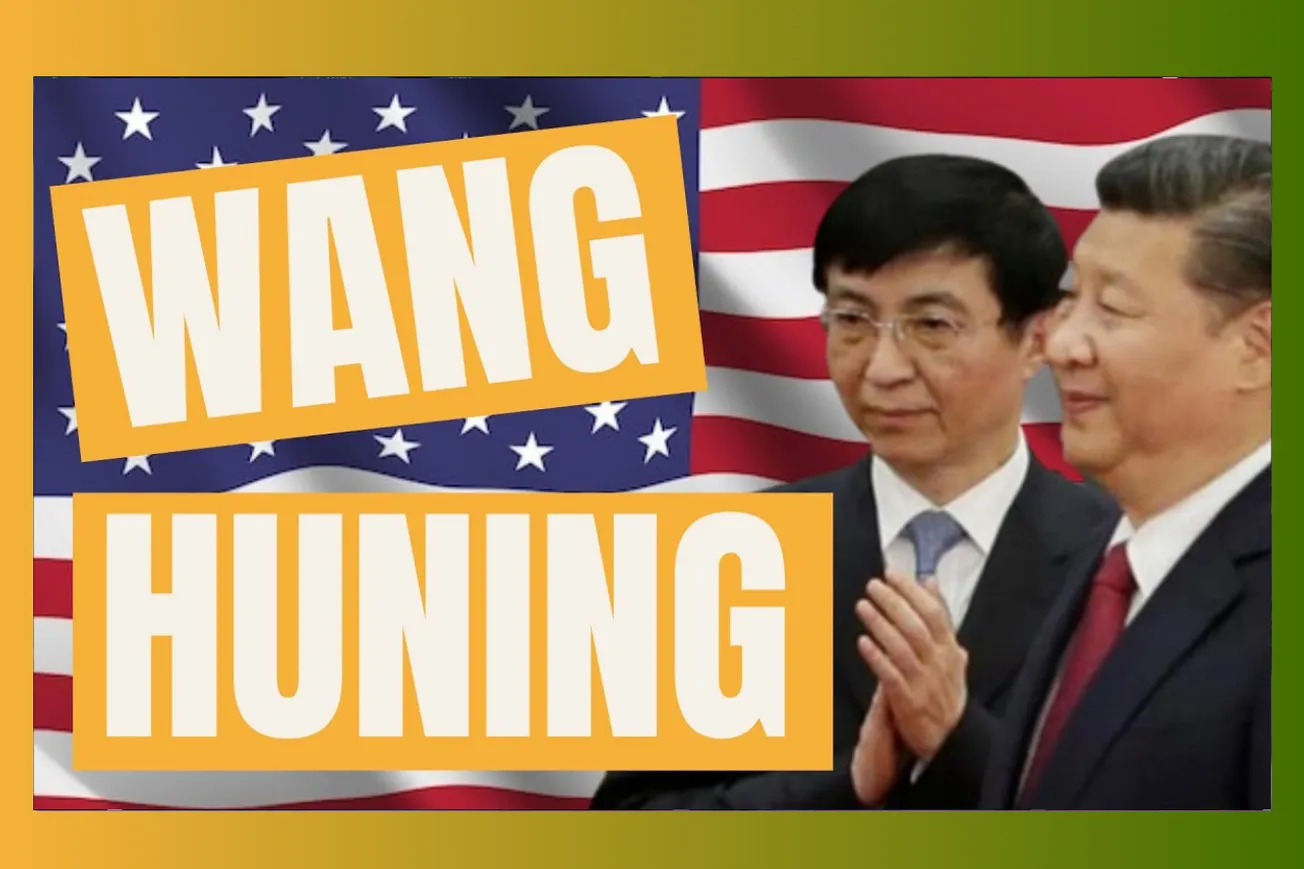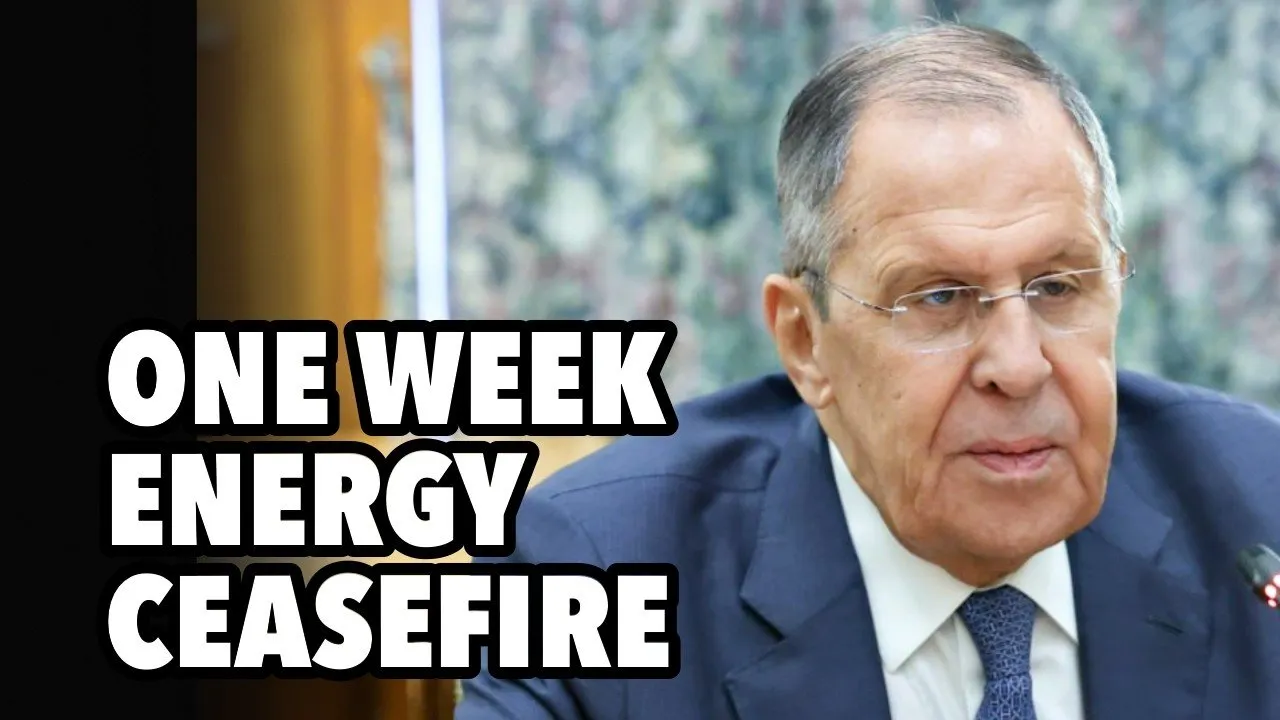Table of Contents
Chang, a prominent China reporter, reveals how Shanghai's harsh lockdown exposed Beijing's authoritarian control while exploring Wang Huning's influential anti-Western philosophy and China's surprising embrace of classical Western education.
Key Takeaways
- Shanghai's promised four-day lockdown extended indefinitely, demonstrating Beijing's override of local governance when political control is threatened
- Wang Huning, China's fifth-highest ranked official, developed anti-Western views after visiting America in the 1980s during cultural curriculum debates
- Chinese universities now show more enthusiasm for Western classics than American institutions, using them to build cultural confidence
- Leo Strauss's philosophy provides Chinese intellectuals a framework for reading Western texts while rejecting progressive Western interpretations
- The Cultural Revolution's trauma drives contemporary Chinese resistance to any tradition-challenging movements, even Western ones
- China's journalist expulsion created massive information gaps between the country's global importance and actual coverage quality
- Cross-cultural intellectual exchanges reveal how different societies process encounters with foreign civilizations and adapt foreign knowledge
- Post-pandemic China is undergoing simultaneous transformations in economics, education, technology, and cultural production that reshape the nation's trajectory
Timeline Overview
- 00:00–08:45 — Shanghai Lockdown Crisis: Family reports from day six of promised four-day West Shanghai lockdown, food shortages, opacity in government communication, and Beijing's takeover from local authorities
- 08:45–18:30 — Wang Huning Introduction: China's most powerful political theorist, fifth-ranked Politburo member, and architect of neo-authoritarian ideology since the 1980s influencing current policy reversals
- 18:30–35:20 — America Against America: Wang's transformative 1980s U.S. visit during university culture wars, his critique of American democracy and cultural fragmentation, technology admiration versus democratic skepticism
- 35:20–45:15 — Sayyid Qutb Comparison: Parallels between Chinese and Egyptian intellectuals' anti-Western reactions, shared backgrounds of moral-political environments, and different trajectories from margin to mainstream
- 45:15–52:30 — Western Influence on Chinese Thought: Wang's adoption of American political scientist Sam Huntington's ideas about political order, neo-conservative intellectual traditions shaping Chinese authoritarianism
- 52:30–68:45 — Classics Revival in China: Personal discovery of greater Western classics enthusiasm in Chinese universities than American ones, Princeton's Latin requirement removal versus Chinese institutional expansion
- 68:45–85:20 — Leo Strauss in China: Austrian philosopher's interpretive methods appealing to Chinese scholars, practical reading approaches, and ideological resistance to Western progressive movements through classical studies
- 85:20–95:30 — Student Perspectives and Teaching: Austrian instructor Leopold Lieb's popular classes at Renmin University, student motivations for studying Latin and Greek, comparative civilization approaches
- 95:30–102:15 — Global China Coverage: Journalist expulsion creating information arbitrage, inadequate coverage relative to China's economic importance, operational difficulties for foreign correspondents
- 102:15–108:30 — Cross-Cultural Observations: Japan-China similarities despite political tensions, bicultural journalist challenges, English as necessary communication bridge between culturally related nations
Shanghai's Lockdown and the Limits of Local Autonomy
The Shanghai lockdown crisis of April 2022 exposed fundamental tensions within China's governance system between cosmopolitan local identity and centralized political control. Chang's family reports from the ground revealed how a promised four-day lockdown stretched indefinitely, creating food shortages and widespread anxiety among Shanghai's 26 million residents.
The initial soft lockdown approach reflected Shanghai's distinctive governance style, where local officials attempted to balance public health measures with the city's economic vitality and international character. Shanghai's residents had grown accustomed to a more measured response that acknowledged their city's unique position as China's financial capital and most internationally connected metropolis.
However, the situation fundamentally shifted when Vice Premier Sun Chunlan arrived from Beijing to assume direct control. This represented more than administrative efficiency—it demonstrated how Beijing intervenes when local approaches threaten broader political imperatives. The transition from local to central management eliminated the flexibility that had characterized Shanghai's earlier COVID response.
The human cost became apparent through basic logistics failures. Despite the impressive feat of delivering vegetable packages to every household in Shanghai, these supplies lasted only days while the lockdown extended far beyond original promises. The one-day notice given to residents before the lockdown began created panic buying that emptied grocery stores, resembling scenes from economic depressions rather than public health measures.
This crisis illustrated the broader challenge facing China's zero-COVID policy as it confronted the more transmissible Omicron variant. While the policy had prevented millions of deaths through strict control measures, the Shanghai experience demonstrated the enormous social and economic costs required to maintain such control over a highly connected, densely populated city.
The lockdown also revealed the political stakes involved in COVID policy. Beijing's directive to control Shanghai by April 11th showed how public health measures had become tests of political authority rather than purely epidemiological responses. Success or failure in controlling the virus directly reflected on the effectiveness of China's governance model.
Wang Huning's Intellectual Journey and American Disillusionment
Wang Huning's rise to become China's fifth-highest ranked official began with a six-month journey through America in the late 1980s that fundamentally shaped his worldview and China's subsequent ideological direction. His experience differed markedly from other young Chinese intellectuals of his generation, who typically idealized American democracy and prosperity.
Wang's visit coincided with significant cultural debates in American universities, particularly around the Stanford University protests against Western civilization curricula led by Jesse Jackson in 1988. He witnessed firsthand the beginning of what would become decades-long culture wars over educational content and Western canonical texts.
His resulting book "America Against America" functioned as both memoir and philosophical treatise, explicitly modeling itself on Tocqueville's observations of American democracy. However, where Tocqueville generally admired American institutions, Wang focused on cultural fragmentation and democratic limitations that he perceived as fundamental weaknesses.
Wang's critique centered on what he saw as America's loss of cultural unity and civilizational confidence. Coming from a Chinese context where the Cultural Revolution had destroyed traditional cultural foundations, he envied America's rich Western heritage while simultaneously criticizing American youth for failing to appreciate their inheritance.
The technological and innovative aspects of American society impressed Wang significantly. He wrote extensively about space programs, electronic gadgets, and capitalist ingenuity that China lacked. This admiration for American technological capability would later influence his support for market-oriented economic reforms within an authoritarian political framework.
His democratic skepticism proved equally influential in developing neo-authoritarian theory. Wang observed that American presidential choices ultimately came down to two candidates despite the country's size and diversity, that interest groups limited genuine popular choice, and that democratic processes could be manipulated by various forces.
These observations supported his emerging philosophy that combined strong state capacity with market economics—rejecting both socialist economics and democratic politics in favor of what would become the Chinese model. His American experience convinced him that democracy was not necessarily superior to well-managed authoritarianism for developing societies.
Wang's intellectual development paralleled his institutional rise within the Communist Party. Unlike pure ideologues who remained marginalized, Wang provided theoretical justification for policies that party leaders instinctively favored, making him invaluable to successive leadership generations from Jiang Zemin through Xi Jinping.
Comparative Authoritarianism: Wang Huning and Sayyid Qutb
The intellectual parallels between Wang Huning and Egyptian theorist Sayyid Qutb illuminate how encounters with Western civilization can produce influential anti-liberal ideologies. Both men experienced formative visits to America that reinforced their opposition to Western liberal democracy, though their subsequent influence followed very different trajectories.
Qutb's visit to America in the early 1950s occurred during a period of American cultural confidence and international expansion. His focus on moral and cultural degradation reflected Islamic concerns about secular Western influence on traditional religious societies. His writings later inspired the Muslim Brotherhood and influenced radical Islamic movements worldwide.
Wang's experience came during a period of American cultural introspection and academic debate about Western civilization's value and relevance. His concerns focused more on political effectiveness and civilizational coherence than religious orthodoxy, reflecting Chinese intellectual traditions that emphasize governance and cultural continuity.
Both men emerged from highly politicized environments where Western influence represented an existential challenge to established order. Qutb developed his worldview during the collapse of the Ottoman Empire and European colonial domination of the Middle East. Wang's intellectual formation occurred during the Cultural Revolution when Western capitalist influence was portrayed as a fundamental threat to socialist revolution.
The key difference lay in their institutional positions and subsequent influence. Qutb remained largely marginalized during his lifetime, facing imprisonment and execution for his radical views. His influence came primarily through underground movements and posthumous inspiration for Islamic fundamentalism.
Wang, by contrast, found receptive audiences within China's political establishment from early in his career. His neo-authoritarian theories provided intellectual justification for policies that party leaders already favored, making him valuable rather than threatening to existing power structures.
This distinction reflects broader differences between how revolutionary Islamic movements and Chinese Communist Party governance approach ideological innovation. Islamic fundamentalism typically challenges existing political arrangements, while Chinese political theory tends to rationalize and strengthen current power relationships.
Both cases demonstrate how intellectual encounters with the West can produce sophisticated critiques that resonate far beyond their original contexts. Their anti-liberal philosophies gained influence precisely because they offered alternatives to Western democratic capitalism at moments when that model faced internal questioning and external challenges.
The Western Classics Renaissance in Chinese Universities
China's embrace of Western classical education represents one of the most unexpected cultural developments in contemporary higher education. Chang's observation that Chinese universities demonstrate greater enthusiasm for Latin, Greek, and classical studies than many American institutions reveals important shifts in how different societies approach their cultural foundations.
The growth of classics programs in China stems from both practical and philosophical motivations. Practically, China's massive expansion of higher education created space for disciplines that previously didn't exist in Chinese universities. The reform and opening period encouraged academic exchange with Western institutions, naturally leading to adoption of Western academic disciplines.
More fundamentally, Chinese intellectuals see Western classical education as providing models for how civilizations can maintain productive relationships with their past. Having experienced the Cultural Revolution's destruction of traditional knowledge, Chinese scholars seek examples of how other societies have preserved and transmitted cultural wisdom across generations.
This approach treats Western classics not as cultural imperialism but as comparative methodology for understanding civilization itself. Chinese classics scholars study Greek and Latin texts alongside Confucian writings, seeking insights into how different societies have addressed fundamental questions about governance, ethics, and human nature.
The role of Leo Strauss in Chinese classical education exemplifies this comparative approach. Strauss's interpretive philosophy, which emphasizes close reading of primary texts without extensive secondary literature, appeals to Chinese scholars already familiar with similar approaches to Confucian classics.
Strauss's anti-progressive stance also resonates with Chinese intellectuals suspicious of Western critical movements that challenge traditional cultural authority. Having witnessed the Cultural Revolution's destructive consequences, Chinese scholars gravitate toward interpretive frameworks that emphasize preservation and appreciation rather than deconstruction and criticism.
The practical advantages of Straussian methodology cannot be overlooked. For Chinese students already investing enormous effort in learning ancient Greek and Latin, the prospect of also mastering German, French, and Italian to engage with European philological traditions represents a daunting additional burden that Strauss's approach eliminates.
Educational Philosophy and Cultural Construction
The Chinese approach to Western classics reflects broader philosophical differences about education's role in cultural development. While American universities increasingly question Western canonical texts' relevance and inclusivity, Chinese institutions see these same texts as valuable resources for cultural construction.
This divergence stems from different historical experiences with tradition and revolution. American educational reforms respond to expanding social awareness about whose voices have been excluded from traditional curricula and how educational content has reinforced social inequalities.
Chinese educational philosophy, shaped by the Cultural Revolution's negative lessons, emphasizes tradition's positive role in social stability and cultural confidence. Rather than questioning whose interests traditional curricula serve, Chinese educators ask how traditional knowledge can serve contemporary nation-building objectives.
The translator Liu Xiaofeng exemplifies this approach through his introduction of Leo Strauss to Chinese academia. Liu explicitly connected Straussian philosophy to resistance against Western progressive influences that he feared would replicate American culture wars in Chinese universities.
This educational philosophy treats cultural knowledge as a foundation for national strength rather than a site for social justice struggles. Chinese classics education aims to build civilizational confidence and comparative cultural understanding rather than challenge existing power relationships or expand marginalized perspectives.
The success of instructors like Leopold Lieb at Renmin University demonstrates student enthusiasm for this approach. Lieb's popularity stems from his ability to bridge Eastern and Western intellectual traditions, making Western civilization accessible to Chinese students while reinforcing rather than challenging their cultural foundations.
Student motivations for studying classics often reflect simple intellectual curiosity rather than ideological commitment. Many discover Latin and Greek courses accidentally, then continue because of exposure to entirely new ways of thinking about fundamental questions that Chinese educational traditions don't address.
Technology, Innovation, and Civilizational Confidence
Wang Huning's American observations about technology and innovation continue to influence Chinese approaches to technological development and international competition. His recognition of American technological superiority in the 1980s, combined with skepticism about American political institutions, supported arguments for selective adoption of Western methods while maintaining Chinese political control.
Contemporary Chinese technology policy reflects this selective approach through emphasis on indigenous innovation within international markets. Rather than wholesale adoption of Western technological models, Chinese policy seeks to master foreign technologies while developing independent capabilities that reduce dependence on Western suppliers.
The recent technology crackdowns mentioned in Chang's forthcoming book represent evolution rather than abandonment of this approach. Regulation of technology companies aims to ensure that technological innovation serves state objectives rather than undermining political control or creating alternative centers of power.
This approach treats technology as a tool for national strength rather than a force for social transformation. Unlike Silicon Valley models that celebrate technological disruption of existing institutions, Chinese technology policy emphasizes harmony between innovation and political stability.
Wang's influence appears in policies that combine technological ambition with cultural conservatism. China seeks to become a technology superpower while maintaining traditional governance structures and cultural values that Western technological development has often challenged.
The education reforms Chang mentions reflect similar priorities, emphasizing vocational training and practical skills alongside traditional academic subjects. This combination aims to produce technological capabilities without the social disruption that rapid technological change has created in Western societies.
Journalism and Information Asymmetries
The challenges facing China coverage in international media reflect broader tensions between China's global importance and its domestic information control policies. Chang's observation about inadequate coverage relative to China's economic significance highlights systematic problems in international understanding of Chinese developments.
The expulsion of Western journalists from China created what Chang describes as an "arbitrage opportunity"—massive gaps between what the world needs to know about China and what information is actually available. This information shortage affects everything from business decisions to diplomatic policies based on incomplete understanding of Chinese priorities and constraints.
The comparison to planned economy inefficiencies proves particularly apt. Just as planned economies created shortages by controlling supply and demand mechanisms, China's control of information access creates knowledge shortages that affect global decision-making about Chinese-related issues.
These information gaps become particularly problematic during crisis periods like the Shanghai lockdown, when understanding Chinese policy responses requires knowledge of internal political dynamics that foreign observers cannot easily access. Misunderstanding Chinese motivations and constraints can lead to both overreaction and underreaction to Chinese policies.
The challenges facing bicultural journalists illustrate broader problems in cross-cultural understanding during periods of international tension. Questions about loyalty and allegiance create impossible choices for journalists whose effectiveness depends on maintaining connections across cultural and political boundaries.
Chang's planned book on post-pandemic China represents efforts to address these information gaps through deep reporting on domestic Chinese developments that rarely receive adequate international attention. Understanding Chinese economic transitions, educational reforms, technology policies, and cultural changes requires sustained attention that current media structures struggle to provide.
The global implications of Chinese policy changes make this information shortage particularly concerning. As China's influence grows, international understanding of Chinese domestic developments becomes crucial for managing relationships and anticipating policy directions that affect worldwide economic and political stability.
Conclusion
The Shanghai lockdown crisis revealed fundamental tensions within China's governance system between local autonomy and central control, while Wang Huning's intellectual journey from 1980s America to China's political pinnacle illustrates how encounters with Western civilization can produce influential alternatives to liberal democracy. China's embrace of Western classical education, combined with resistance to Western progressive movements, demonstrates sophisticated approaches to cultural development that emphasize construction over deconstruction.
These developments occur within broader transformations in Chinese economics, education, technology, and culture that reshape both domestic Chinese society and international relationships in ways that remain inadequately understood due to systematic information gaps between China's global importance and available coverage quality.
Practical Implications
- For International Relations: Recognize that Chinese policy decisions often reflect internal political dynamics and historical experiences that differ fundamentally from Western assumptions about rational state behavior
- For Educational Institutions: Consider how different societies approach cultural transmission and tradition, noting that rejection of traditional curricula is not universal and may reflect specific historical experiences rather than progressive inevitability
- For Business Strategy: Account for information asymmetries when making China-related decisions, recognizing that standard sources may provide inadequate understanding of Chinese domestic developments and policy motivations
- For Media Organizations: Invest in sustained China coverage that goes beyond crisis reporting to provide deep understanding of ongoing social, economic, and cultural transformations within Chinese society
- For Policy Analysis: Develop frameworks for understanding authoritarian governance that acknowledge sophisticated intellectual foundations rather than dismissing non-democratic systems as purely repressive or economically motivated
- For Academic Research: Explore comparative approaches to civilizational development that examine how different societies preserve and transmit cultural knowledge across generations and political transitions
- For Cultural Exchange: Recognize that cross-cultural intellectual encounters can produce influential ideas that diverge from expected liberal democratic outcomes, requiring nuanced understanding of how different societies process foreign influences
- For Technology Policy: Understand that Chinese approaches to innovation reflect broader philosophical commitments to political stability and cultural continuity that differ from Western models emphasizing disruption and social transformation





